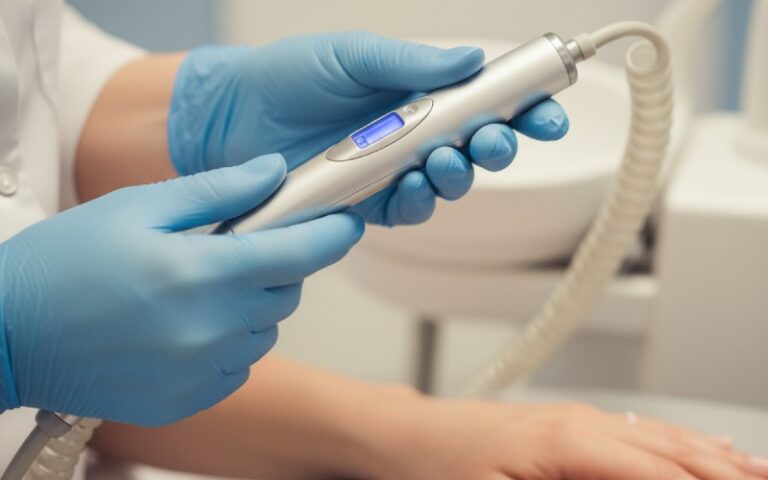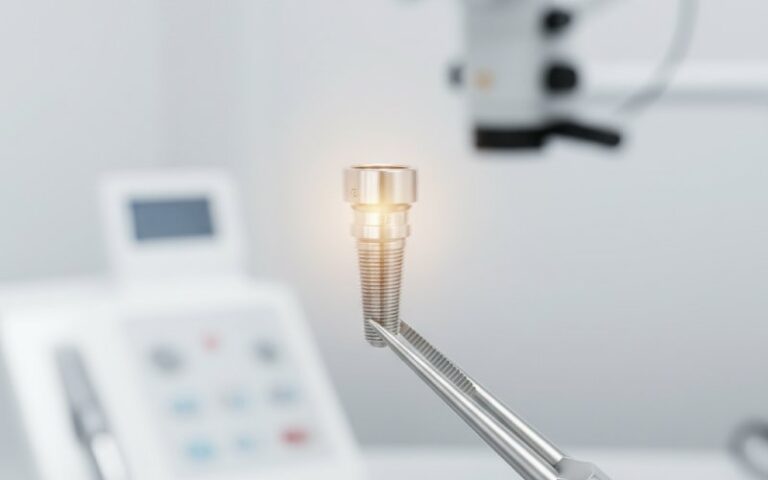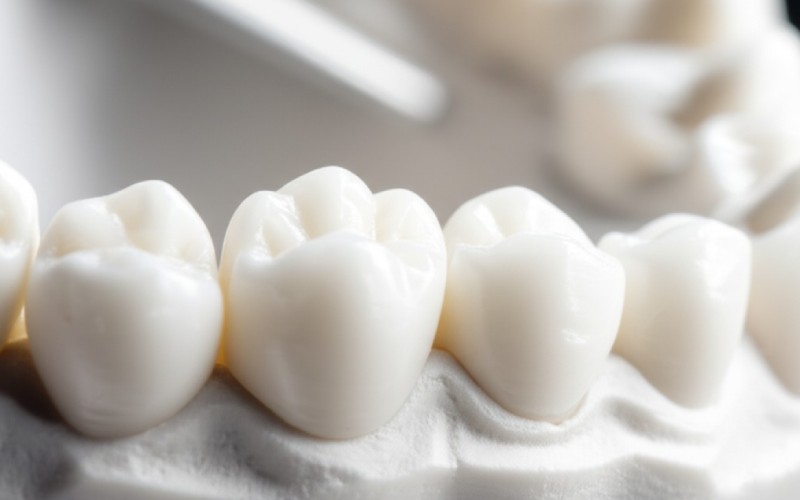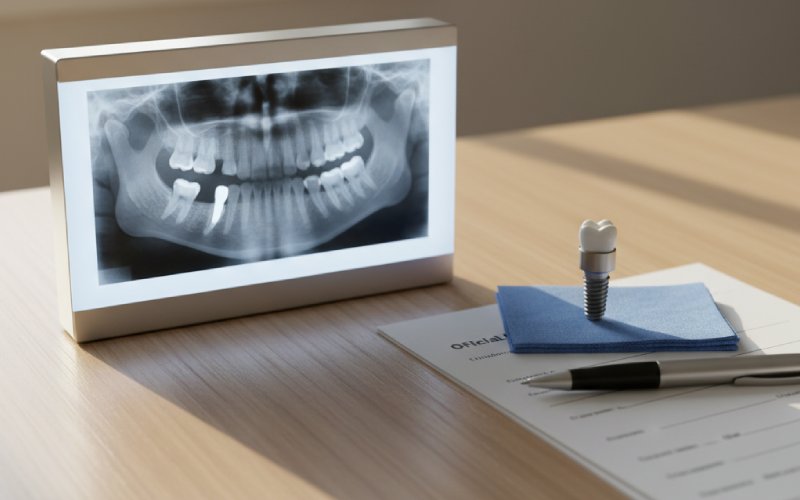
Can Medicaid Pay for Dental Implants? A Guide to Your Coverage and Other Choices
When you have a missing tooth, it can be hard to eat or to smile. A dental implant is a good way to fix this. But this kind of dental work can cost a lot of money. You might ask, “Does Medicaid cover dental implants?” This article will give you clear and simple answers. We will look at times when Medicaid covers this work and what you can do if it does not. Keep reading to find out how you can get help to pay for dental implants and get your smile back.
Table of Contents
What Is a Dental Implant, and Why Might I Need One?
A dental implant is like a new root for a tooth. It is often a small screw that is made of titanium. A special doctor, like an oral surgeon, puts the dental implant into your jawbone. This screw acts like a strong base. After it is in place, a new fake tooth is attached to it. This fake tooth is called a crown. It is connected with a small part called an abutment. The dental implant looks and feels just like a real tooth.
People may need a dental implant for different reasons. Maybe you lost a tooth in an accident. Or maybe a tooth had to be pulled because it was unhealthy. Having missing teeth can lead to problems with your oral health. It can make it hard to chew your food or to talk clearly. A dental implant can solve these problems. It is a fix that lasts a long time. It helps keep your jawbone strong and your smile looking good. This type of dental work is a top choice for replacing one tooth or even a few teeth.
So, Does Medicaid Usually Cover a Dental Implant?
This is the most important question. The short answer is: most of the time, no. Most state Medicaid programs will not cover a dental implant. Medicaid is a healthcare program for people with low-income. Every state makes its own rules about what it will cover. Most states give dental care to children. But for grown-ups, the dental benefits may not be very much.
Often, Medicaid covers only simple dental care. This could be things like check-ups, fillings, or having a tooth pulled. A dental implant is usually seen as something that is done for looks, which is called cosmetic. This means it is seen as something to make you look better, not something you need for your health. Because a dental implant is expensive and a big job, most Medicaid plans do not cover it. But, there are some special times when you might be able to get coverage for dental implants.
Why Is It So Hard to Get Medicaid to Cover a Dental Implant?
It can be very difficult to get Medicaid to cover dental work like a dental implant. The biggest reason is the cost. Just one dental implant can cost thousands of dollars. Medicaid programs only have so much money to spend. They have to use their money for health care that people must have. An expensive dental implant is not thought of as something you must have.
Also, a dental implant is often called an elective or cosmetic procedure. This means it is work you choose to have done to look better. Medicaid does not cover most work that is just for looks. They think of a dental implant as a choice, not a health need. There are other choices that cost less, like a denture or a bridge. Medicaid is more likely to cover those cheaper ways to fix missing teeth. This is why getting them to say yes to a dental implant can take a long time and be hard to do.

When Could Medicaid Agree to Pay for Dental Implants?
There is one big exception to the rule. Medicaid may cover a dental implant if it can be shown that it is medically necessary. This is a very important idea. Medically necessary means you need the treatment for your whole body’s health, not only for your smile. You have to prove that not getting the dental implant would lead to bad health problems.
For example, maybe you lost a tooth from an accident that hurt your jaw. In a case like that, a dental implant could be needed to fix your jaw so you can eat right. Or, maybe you have mouth cancer. A dental implant could be part of the treatment to fix your mouth after an operation. In very serious health cases where a dental implant is the only good choice, Medicaid might say yes and pay for dental implants. It does not happen often, but it is possible.
How Can I Show That My Dental Implant Is Needed for My Health?
To prove that you need it for your health, you will need a lot of paperwork. Your doctor or dentist needs to write a letter to Medicaid. The letter has to explain very clearly why the dental implant is important for your health. It should say that other choices, like a denture, will not work for you or could make you sicker. This is your best shot to get Medicaid to cover dental implants.
The letter should have your medical papers, x-rays, and notes from other doctors. For instance, if you cannot wear a denture because of a health problem, your doctor must explain that. The main goal is to make a strong case. You must show that the dental implant is not for looks, but a very important part of the care you need to be healthy. Your state’s Medicaid program will look at all this paperwork and then decide. You need good reasons to get them to say yes.
If I Can Get It Covered, How Do I Get Medicaid to Pay for the Dental Implant?
If you feel your dental implant is needed for your health, your first step is to see your dentist. They can help you see if you might be able to get it covered. If they think so, they will start the paperwork. This is called “prior authorization.” It means you must get approval from Medicaid before you get the work done. You cannot get the dental implant and then ask Medicaid to pay for it.
Your dentist will mail all the needed papers to your state’s Medicaid office. This will have the letter about medical necessity and your health papers. The Medicaid office will look at your case. They will decide if the dental implant work fits their rules for what they will cover. This can take a while. If they say yes, Medicaid will cover the cost. If they say no, you can ask them to look at it again.
Does the Medicaid Program in My State Cover Dental Implants?
The rules for Medicaid are different in each state. Some states give grown-ups better dental coverage than other states do. A type of work that is covered by Medicaid in one state might not be covered in the next one over. This is why it is so important for you to check the rules where you are. You can’t just guess what the rules are. What’s the best way to learn more?
You should check with your local Medicaid office. You can give them a call or go to their website. Ask them straight out if their dental plan for adults ever covers dental implants. Ask about the rules for proving that it is needed for your health. Some states may cover it for certain health problems, while other states will not cover a dental implant at all. Finding out your state’s rules is the first thing you should do.
What Are My Other Choices if Medicaid Will Not Cover My Dental Implant?
If Medicaid says it doesn’t cover your dental implant, don’t give up. You still have other choices you can look at. These choices can help you get the dental care you need. A common choice is a dental bridge. A bridge uses the teeth on both sides of the open space to hold a fake tooth. It costs less than a dental implant.
Another of the common options like this is a partial denture. A denture is a plate you can take out that holds one or more fake teeth. It is one of the cheapest ways to deal with missing teeth. Even though a dental implant is usually best for your oral health, these other treatments can also help you eat better and make your smile look nice. Talk with your dentist about which choice is right for you and what you can afford.
| Treatment Choice | How It Is Done | Good Things | Bad Things |
|---|---|---|---|
| Dental Implant | A titanium post is put in the jawbone to hold a new crown. | Lasts forever, feels real, is good for the jawbone. | Costs a lot, needs surgery, takes a long time. |
| Dental Bridge | A fake tooth is held by crowns on the teeth next to the empty space. | Costs less than an implant, no bone surgery. | Can harm good teeth, harder to keep clean. |
| Partial Denture | A plate with fake teeth that you can take out. It clips onto other teeth. | Costs the least, no surgery. | Can feel weird, might move, must be taken out to clean. |
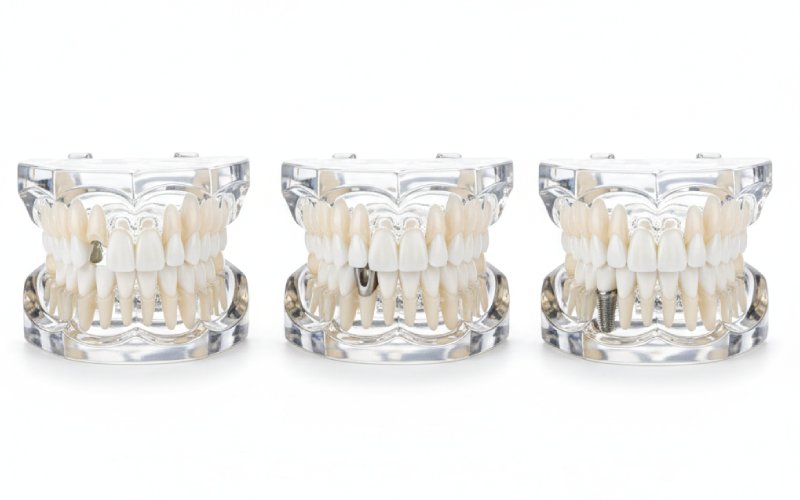
Could a Private Dental Insurance Plan Help Me Pay for Dental Implants?
If you can buy private dental insurance, it might help with the cost of dental implants. Many insurance plans today give some coverage for dental implants. But, this coverage for dental work is often not very much. Most dental insurance plans have a yearly limit on what they will pay. This is the most the insurance will pay in one year, and it is usually about $1,500.
Because one dental implant can cost a lot more than that, your dental plan will likely not cover everything. Some insurance plans do not cover a dental implant at all. They might say it is work done only for looks. When you look for a dental insurance plan, be sure to read all the small details. See if they cover implants, how much they cover, and what the yearly limit is. A good insurance plan can make a dental implant cost less, but it probably will not cover the whole price.
Are There More Ways to Make a Dental Implant Cost Less?
Yes! There are other ways to make a dental implant easier to pay for. Here are some ideas:
- Dental Schools: Colleges with dental schools often do dental work for less money. Students do the treatment while their skilled teachers watch them. The work they do is still very good, but the price is much lower.
- Discount Dental Plans: These are not insurance, but they help. You pay a monthly or yearly fee in exchange for a lower price on dental work, including implants. You can get a good discount on the cost of implants.
- Payment Plans: Many dental offices offer financing. These plans let you pay for the dental implant a little bit at a time over many months. This can make the procedure much easier to handle.
- Dental Charities: Some groups that help people can assist low-income individuals with getting the dental care they need, including dental implants. The American Dental Association might have a list of these groups near you.
It is always smart to talk about the cost of dental work with your dentist. They want to help you get the treatment you need. Ask them if they know about any programs or options to help you pay for dental implants.
Key Things to Remember
- Medicaid usually does not cover a dental implant. This is because it is often thought of as work done just to look better.
- They might make an exception if the dental implant is needed for your health. You will need strong proof from a doctor.
- The rules for Medicaid are different in each state. You should check with your state’s program to see what its dental coverage is.
- If Medicaid will not cover your dental implant, you have other choices. These include bridges, dentures, dental schools, and payment plans.
- Private dental insurance might cover some of the cost, but these plans often have limits on how much they will pay.

